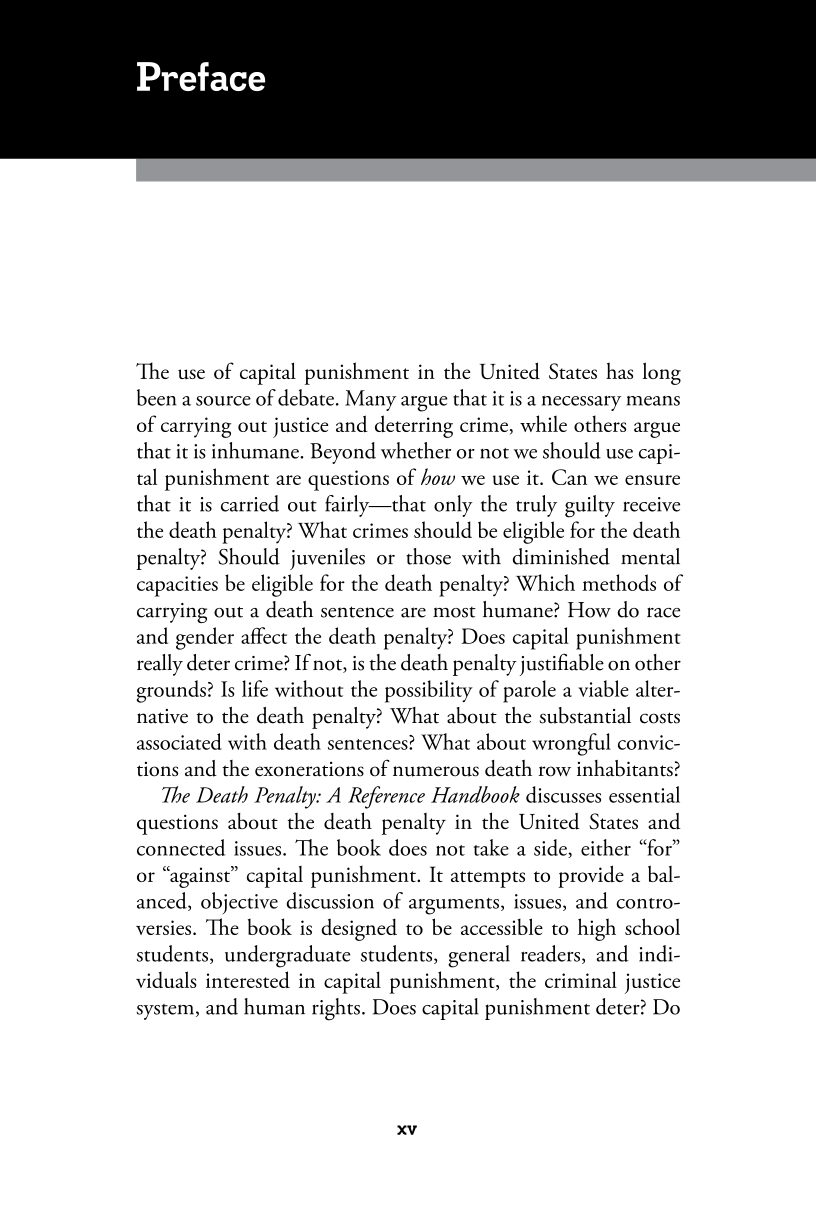xv
Preface
The use of capital punishment in the United States has long
been a source of debate. Many argue that it is a necessary means
of carrying out justice and deterring crime, while others argue
that it is inhumane. Beyond whether or not we should use capi-
tal punishment are questions of how we use it. Can we ensure
that it is carried out fairly—that only the truly guilty receive
the death penalty? What crimes should be eligible for the death
penalty? Should juveniles or those with diminished mental
capacities be eligible for the death penalty? Which methods of
carrying out a death sentence are most humane? How do race
and gender affect the death penalty? Does capital punishment
really deter crime? If not, is the death penalty justifiable on other
grounds? Is life without the possibility of parole a viable alter-
native to the death penalty? What about the substantial costs
associated with death sentences? What about wrongful convic-
tions and the exonerations of numerous death row inhabitants?
The Death Penalty: A Reference Handbook discusses essential
questions about the death penalty in the United States and
connected issues. The book does not take a side, either “for”
or “against” capital punishment. It attempts to provide a bal-
anced, objective discussion of arguments, issues, and contro-
versies. The book is designed to be accessible to high school
students, undergraduate students, general readers, and indi-
viduals interested in capital punishment, the criminal justice
system, and human rights. Does capital punishment deter? Do







































































































































































































































































































































































































